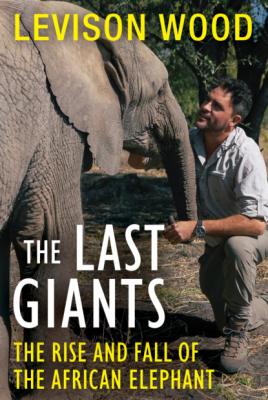The Last Giants. Levison Wood
Читать онлайн.| Название | The Last Giants |
|---|---|
| Автор произведения | Levison Wood |
| Жанр | Биология |
| Серия | |
| Издательство | Биология |
| Год выпуска | 0 |
| isbn | 9780802158482 |
THE LAST
GIANTS
Also by Levison Wood
Walking the Nile
Walking the Himalayas
Walking the Americas
Eastern Horizons
An Arabian Journey
Incredible Journeys
LEVISON WOOD
THE LAST
GIANTS
THE RISE AND FALL OF THE AFRICAN ELEPHANT
Black Cat
New York
Copyright © 2020 by Levison Wood
Illustrations © by Tash Turgoose
Cover photograph © Simon Buxton @simonbuxton
All rights reserved. No part of this book may be reproduced in any form or by any electronic or mechanical means, including information storage and retrieval systems, without permission in writing from the publisher, except by a reviewer, who may quote brief passages in a review. Scanning, uploading, and electronic distribution of this book or the facilitation of such without the permission of the publisher is prohibited. Please purchase only authorized electronic editions, and do not participate in or encourage electronic piracy of copyrighted materials. Your support of the author’s rights is appreciated. Any member of educational institutions wishing to photocopy part or all of the work for classroom use, or anthology, should send inquiries to Grove Atlantic, 154 West 14th Street, NewYork, NY 10011 or [email protected].
First published in Great Britain in 2020 by Hodder & Stoughton An Hachette UK company
Published simultaneously in Canada
Printed in the United States of America
First Grove Atlantic paperback edition: November 2020
Library of Congress Cataloging-in-Publication data is available for this title.
ISBN978-0-8021-5847-5
eISBN978-0-8021-5848-2
Black Cat
an imprint of Grove Atlantic
154 West 14th Street
New York, NY 10011
Distributed by Publishers Group West
For all the wildlife rangers and conservationists
who dedicate their lives to protecting all species
With special thanks to Dr Lucy Bates, Visiting Fellow at the School of Psychology, University of Sussex and Dr Graeme Shannon, Lecturer in Zoology in the School of Natural Sciences, Bangor University without whom this book would not have been possible. Their research and contribution has been invaluable, and their work instrumental in how we understand the world of elephants.
Contents
1. A Brief History of the African Elephant
10. The Elephant in the Room: Habitat Loss
11. A World Without
Once, when I was a young boy, my father took me to an art exhibition during the school summer holidays. At the time, my dad was a keen amateur painter, one of his many changing hobbies, and a famous artist called David Shepherd had brought his paintings to the local town of Leek where they were on display. What’s more, Mr Shepherd was in town himself, signing books and talking about his pictures.
Now at the age of eleven, I can’t say I knew much about art, but I went along to humour my dad, who really wanted to meet this great man. When I got there, much to my relief, I found that the pictures were very good. There were lots of paintings of trains, planes and important people, but the ones I liked the most were the pictures of animals. There were tigers, zebras and rhinos – although the paintings that intrigued me the most were the ones of elephants.
‘Do you like elephants?’ a voice called out from behind me, as I was staring up at the vast canvas.
I turned around to be confronted by a scruffy-looking, white-haired man, who appeared to me to be very old. I told him that I had never seen an elephant before in real life, but I’d read about them at school and I’d seen them on the David Attenborough documentaries. ‘Well, one day I’m sure you’ll see them for yourself, in Africa perhaps,’ he said, with a patient smile. He put out his hand and I shook it. It was David Shepherd, the artist himself.
‘Ask Mr Shepherd a question,’ my dad insisted. My mind went blank for a moment, before it occurred to me to ask whether or not he had always been a good artist. Mr Shepherd stroked his chin and smiled.
‘Young man,’ he said, ‘shall I show you one of my first efforts at painting?’
I nodded.
David Shepherd turned around and motioned for me to follow him to the corner of the room, where he had some bags and a large plastic folder, which he picked up and opened. He rustled around and out of it he pulled a yellowed piece of paper, no bigger than a normal A4 sheet. He handed it to me. I looked down and my astonishment must have been quite apparent.
‘Not very good is it?’ he said, beaming. I didn’t know what to say. My dad had always taught me to be polite, but there was no hiding the fact that
